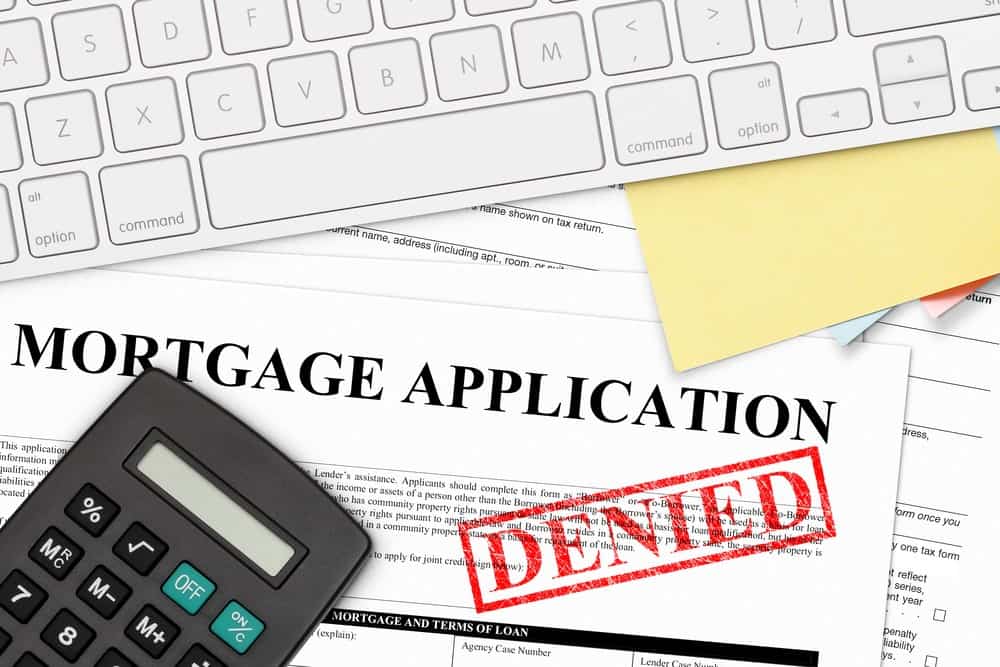Applying for a mortgage can be nerve wracking. Wondering if you will be approved or denied can be stressful to say the least. Although mortgage denials are at their lowest level since the financial crisis, it still happens every day. In fact, a study conducted by LendingTree shows that 1 in 10 mortgage borrowers in 2018 were denied during the application process.
Obviously, the risk of mortgage application rejection is real. As a home buyer, the best thing you can do is understand the reasons that mortgage applications are denied, so you know what you can to avoid problems during the home buying process. We are going to explore the four most common reasons below to help ensure that you have a successful mortgage process.
1. Bad Credit/No Credit Established
Credit scores can range from 300 to 850. Bad credit is any score between 300 and 619. Consumers who have poor repayment habits, like making late payments on credit cards with a high balance, will continue to have a poor credit score until they change the way they pay their bills. If you have poor credit, here’s what you can do to build your credit back:
- Pay all bills on time
- Pay more than the minimum required amount on credit cards
- Stop accumulating credit card debt
If you have no credit history, mortgage lenders are unlikely to approve your application because you have not yet proved yourself to be responsible with your debts. Get a credit card and pay your bill each month, on time.
2. Little Down Payment
Lenders can require a down payment of any amount between 3.5% and 20%, depending on the loan type. If you are unable to make the recommended down payment, you’re far less likely to get the loan. Some people hope or assume that a down payment can be financed into their loan, but it doesn’t work this way. Talk to your lender while you’re saving for your loan to find out how much you should have on hand to be approved for a mortgage.
3. High Debt-to-Income Ratio
In 2018 high debt-to-income ratio was the top reason why mortgages were denied. Lenders can see your income, bills and other debts. Most lenders require consumers to maintain a debt-to-income ratio of less than 43%, though some lenders will go higher. This amount includes the money you would pay each month toward your mortgage, which cannot itself be more than 28% of gross monthly income. If your DTI is too high, you can solve this problem by either paying down debts, or increasing your income.
4. Unstable Employment History
Lenders want to loan money to consumers who can hold down a job, produce steady income, and make regular payments. Many lenders require two years of consistent employment before they will loan money to a home buyer. If you want to buy a home soon, do not switch jobs without talking first to your lender. To prove income, your lender may ask to see pay stubs, bank statements and tax returns. Have these documents on hand when applying for a loan.
Want to Avoid Mortgage Denial? Contact Mid America Mortgage to Find Out More
If you’ve been denied in the past, it may be due to one of the reasons above. Don’t feel too bad! Take some time to build your credit, pay off your debts, save for a down payment and build up a history of steady employment. Doing this, you should be able to set yourself up for mortgage approval. Once you have been approved, keep up your good credit score and continue to pay your bills on time, as it can only help you for the future.



